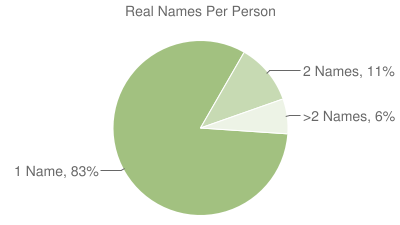School teachers used to warn students that any bad grades
they received would be forever noted on their infamous permanent record. In a digital era where social networking
sites dominate the internet, and privacy has become more of a luxury than a
necessity, individuals everywhere have much more to worry about than a bad
report card. In the endless controversy
regarding our first amendment right versus consumer privacy rights, the 20th
Annual CFP (Computers, Freedom, and Privacy)
Conference brought together rights activists, companies and attorneys from a
variety of backgrounds in hopes of striking a balance between online
information brokers and privacy.
The argument between free speech and privacy is in many ways
two sides of the same coin. Consumer
advocacy groups argue that not only are consumers unaware of how their personal
information is being collected and used, but they also cannot do anything to
change this. On the other hand, certain
attorneys, large search engines and information commerce companies cite that
while privacy is valued, so is safety and trust to the people you are
interacting with on a daily basis.
Luckily, both sides support forums like CFP
that can create functional transparency in the public information industry and
can help define and clarify the large gray area that is the foundation for
endless lawsuits and controversy.
In a CFP panel titled, Online Information Brokers and Privacy: Where’s the Balance, representatives of non-profit consumer
advocacy organizations like the Privacy
Rights Clearinghouse and the World
Privacy Forum instilled concern in viewers by alluding to specific
anecdotes where public records of individuals (such as witnesses or domestic
violence witnesses) have led to harassment and identity theft. Generally speaking, these activist groups aim
to spread awareness and advise consumers on how to protect their privacy
rights. They also stated how public
records can pose security concerns because of the way fraudulent businesses in
the past have used data in malicious ways.
Intelius Chief Privacy
Officer, Jim Adler,
served on the other end of the panel working together with privacy activists to
create a balance and ultimately find a way to better serve the needs of
consumers. Adler noted that Intelius is
not only aware of emerging concerns, but is also interested in increasing
communication and collaboration with rights advocates to reach a middle
ground. In addition, he noted that the
company understands that the higher level of transparency being created by
social media and the internet also means privacy issues that need to be
addressed. For these reasons, Intelius
has developed specific policies to differentiate itself from many other online
information companies. While other businesses do not give you the option of
deleting your information (citing free speech), Intelius has a free opt-out
policy where individuals (i.e. threatened witnesses, law enforcement, and domestic violence victims) can remove themselves,
no questions asked.
Different from a large amount of information brokers being
attacked by activists, Intelius does not sell lists of information. Instead, they act as an information retailer
that buys lists, gathers information and sells it one at a time to consumers in
hopes of providing insight and security. Intelius, Adler states, believes that in order
to “strike this balance, you’ll need to be able to have an environment where
you can innovate responsibly… trust the individuals you interact with, and
provide people with valuable services,” requiring industry collaboration. Ultimately, he believes that it is necessary
to work together with privacy organizations to use public records in proactive
ways that ultimately empower consumers.
However, even though Intelius can help you remove your name from their
database, there are still hundreds of other companies willing to give out your
information for a price.
In the midst of a social media phenomenon, consumer advocacy
groups show how free basic public records have recently transformed into more
robust reports from aggregators like Spokeo.com,
who compile a wide range of information, including personal information from
social networking sites. The average
consumer, they argue, is unaware of how much of the personal information is
online and how it is being used. In a new age of modern permanent records,
popular sites like Facebook and Twitter are the face of a hidden world of
commercial data brokers. Moreover, not
all information is accurate, and even if consumers are aware, they are unable
to erase or correct their personal records.
As a company dedicated to ultimately providing customers with a valuable
service, Adler declared “the next step is to give you transparency to the info
that’s out there, know what your digital footprint is, and then provide a way
to comment, dispute and correct (it)”.
Privacy advocate organizations also noted there is a wide
spectrum of information commerce companies that make up the industry, and not
all can be placed in the same negatively perceived category. The very idea that certain companies, like
Intelius, were interested in participating in such a conference sheds light upon
companies and their willingness to address their consumers concerns.
Forums like CFP are able to bring together all sides of the
issue, and through industry cooperation, increase the likelihood of creating clear
definitions and viable solutions. Both
consumer privacy activists and information brokers support an approach that requires advocates,
consumers, companies, and regulators to come together to figure out what’s
right.
All participants on the CFP panel agree that in the future,
data collection is inevitable, and panels like this can help create a balance
between privacy and public records.
Adler ended his speech reminding viewers that “innovation is a team
sport and it requires everyone to help us get through this in a productive way
that empowers the customers.” In the
meantime, consumers need to be informed and aware of the availability of their
personal information, knowing their online activity may forever be accessible
on their modern permanent record.
Bookmark/Search this post with:



 Delicious
Delicious Digg
Digg StumbleUpon
StumbleUpon Propeller
Propeller Reddit
Reddit Magnoliacom
Magnoliacom Furl
Furl Facebook
Facebook Google
Google Yahoo
Yahoo Technorati
Technorati